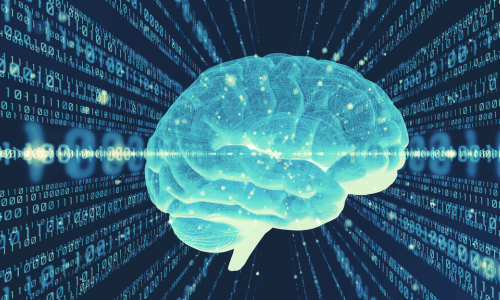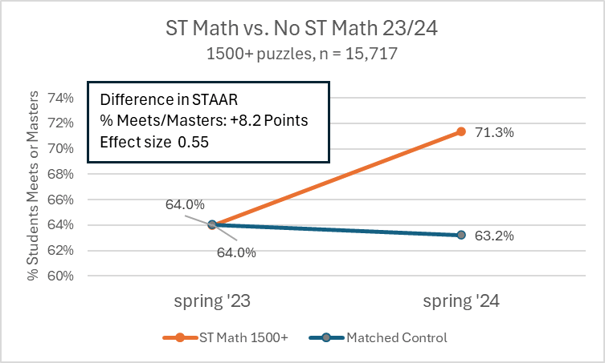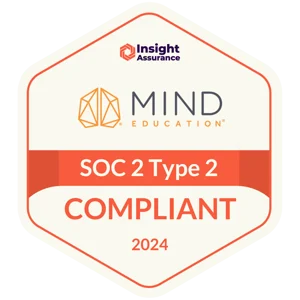I want to start by talking about soccer. Specifically, the coaching my son (now in 8th grade) receives at his club, Dynamo, in Los Angeles.
As a student of the neuroscience of learning, it’s been fascinating to observe so many neuroscientific learning principles unfold in the training field in front of me. For example, the kids are consistently driven to be in that “zone of proximal development”—just on the wrong side of their comfort zone—challenged in scrimmages played at great speed to function under pressure and find the right pass and “make the right decision.” But it’s when they get it wrong that I really start smiling. The coach will stop the scrimmage, ask the kids to reset to where they just were, and replay the moment, but this time standing with the “learner,” discussing what they could do differently, demonstrating and allowing them to try something else, a turn to the other side, controlling the ball with the other foot, whatever it might be that can change the game.

This is productive struggle in action, learning the way the brain learns, immediate formative feedback played out with a futball (sorry, I’m British), and very importantly, using mistakes as one of the primary drivers of the learning process. Unsurprisingly, for my son, that learning process has been absolutely phenomenal.
How I wish his Algebra 1 class last year had been as full of the same learning by doing. Unfortunately, it was largely procedural memorization and edtech-supported practice. This is basically the equivalent of being made to do endless soccer drills but never getting to play a game or even knowing that the game exists. The game of mathematics is the struggle; it is the problem-solving; it is the drive to creative reasoning and the flash of inspiration that allows you to figure out solutions even when you didn’t initially know what to do.
When we over-coach our math students by telling them everything they need to know up front, trying to minimize their struggle, we do them a huge disservice. First, their brains learn really well through the active process of the struggle—and pretty badly from passively trying to absorb a mound of unconnected information—but secondly, to quote the late Physicist Richard Feynman, we remove the “joy of figuring things out.” And ultimately, it is by building a robust joy of figuring things out and a joy for mathematical creativity that we will arm our younger generation with the tools they need for their future, both as they leave the education world and head into the job market, but also as this generation begins to tackle the looming global crises on their immediate horizon.
Why Math Education Must Evolve: A Look Back and a Path Forward
In our first blog, My Daughter Doesn’t Need My Mother’s Math Education, we probed on the shifts needed from the 1963 mathematics education model, highlighting how that model fails to meet the needs of today’s students. The world has changed, and so must our approach to education.
We explored the urgency for transformation, emphasizing the urgent need for change in our education system. Traditional approaches to teaching mathematics are no longer sufficient to equip students with the skills they need for the future.
In our Rules to Reasoning blog, we stressed the importance of developing critical thinkers rather than rote memorizers. In a complex and ever-changing world, the ability to reason and think critically is paramount.
And, we looked at the power of transformative learning experiences that ignite curiosity and understanding. These “aha moments” are crucial for deep and meaningful learning.
But maybe you are still asking, “Does it matter?”
It absolutely matters. Let’s explore WHY.

Preparing For Tomorrow: Why Today’s Math Skills Aren’t Enough
Today’s students don’t need to be able to solve problems “like a machine”; they need to be able to build the machines to solve problems! As we look ahead to the next decade, the skills in most demand for the future job market, according to Forbes and Totara, include:
- Critical Thinking: The ability to analyze and evaluate information to make informed decisions.
- Creativity: The capacity to think outside the box and innovate.
- Emotional Intelligence: Understanding and managing emotions to interact effectively with others.
- Problem-Solving: Tackling complex challenges with strategic solutions.
You may also be aware of the 4C’s of 21st Century Learning: communication, collaboration, critical thinking, and creative thinking. It is striking that NONE of these skills can be learned by simply listening to someone tell you how to do them. They develop in response to being challenged, and learning by DOING, and by actively working with a team to solve problems. And a mathematics classroom (or a soccer field) is a fantastic place for these skills to be developed and to flourish.
If we embrace math learning with productive struggle, immediate formative feedback, and tasks with a low floor but a high ceiling, modern math education can foster these in-demand skills. This can happen through innovative teaching methods and activities like:
Active Learning: Encouraging students to work on non-routine problems, fostering critical thinking and problem-solving.
Collaborative Learning: Promoting discourse, teamwork and emotional intelligence as students work together to solve math challenges.
Creative Reasoning: Actively Engaging students in activities that require creativity and innovative thinking. (quick teacher notes)

Preparing Students For LIFE
Preparing students for the future is about equipping them with the skills needed so that they are better prepared to face life’s challenges. This approach helps them become well-rounded individuals capable of making meaningful contributions to society. We have to lean into a vision for our students’ future where mathematics education is reimagined to meet these needs. It will require a partnership between all of us—as educators, as parents, and as policy-makers—to seek those experiences for students that push their creativity. Just as we encourage them to step beyond their comfort zones, we must also be willing to step beyond ours. Together, we can create a better way forward.
Discover MIND Education’s Approach to Math Learning and be a part of revolutionizing the future of math education.



